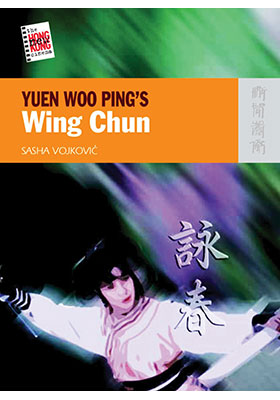Yuen Woo Ping’s Wing Chun
(袁和平的《詠春》)
ISBN : 978-962-209-967-8
March 2009
156 pages, 5.5″ x 7.5″
- HK$195.00
Ebooks
Also Available on
Yuen Woo Ping’s kung fu comedy based on the legendary female character Wing Chun is a landmark of action choreography and heroic womanhood in Chinese cinema. This book explores Wing Chun’s narrative representation of femininity and the martial arts genre, its history, traditions and cultural influences. While studio-made Hong Kong genre cinema has stressed action over narrative, Wing Chun offers a more egalitarian gender imaginary rooted in Daoist and Buddhist thought. The book provides new insights on the non-linear cinematic storytelling of the film. This is the first in-depth study of the work of Yuen Woo Ping, the well-known Hong Kong film director and action choreographer who achieved international recognition as an action choreographer of films such as The Matrix; Crouching Tiger, Hidden Dragon; and Quentin Tarantino’s Kill Bill, Volumes 1 & 2.
“This is an extremely interesting study of a critically neglected film. The author provides a stimulating and detailed analysis, written from a position of considerable knowledge of the martial arts genre, its history, traditions and cultural influences. Applying high theory to a singularly unpretentious film, she is sensitive to the specificities of particular kinds of studio-made Hong Kong genre cinema, with its stress on action over narrative and ‘flat’ characterization, and argues convincingly that such films resist dominant models of film theory.” —Leon Hunt, Brunel University
“Vojković’s original and provocative study of Wing Chun illustrates how Hong Kong films—especially those in the action genre—‘work contrary to the laws of common sense that govern the social imagination of Western traditions.’ Focusing on the more egalitarian gender imaginary in Daoist and Buddhist thought, the author argues against Freudian and Lacanian frameworks regarding sexual difference as the basis of signification in favor of Deleuze and Guattari’s concepts of ‘deterritorialization’ and ‘becoming’ through which the author tracks the narratological process of cinematic storytelling and the emergence of (female) subject positions in Wing Chun.” —Helen Leung, Simon Fraser University




